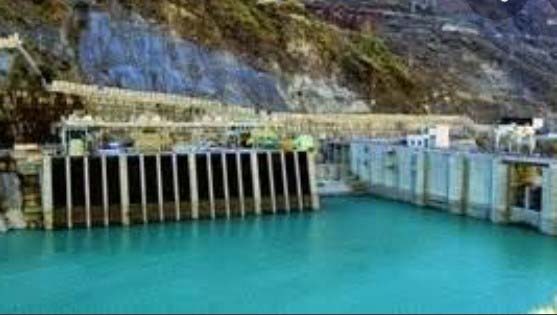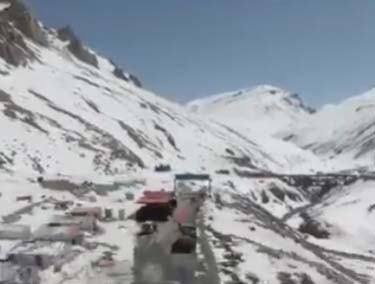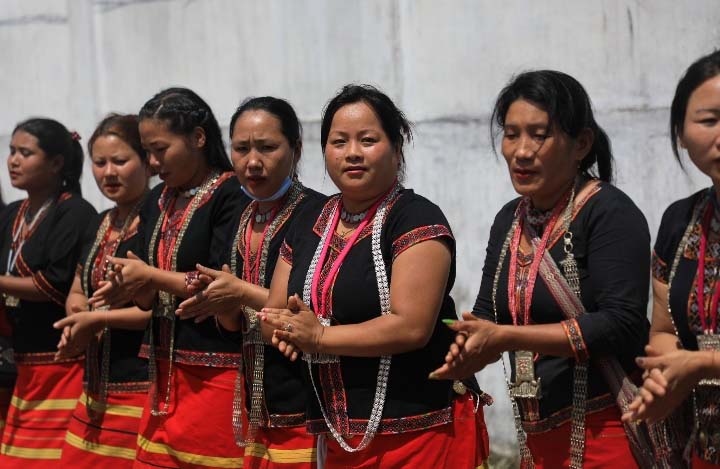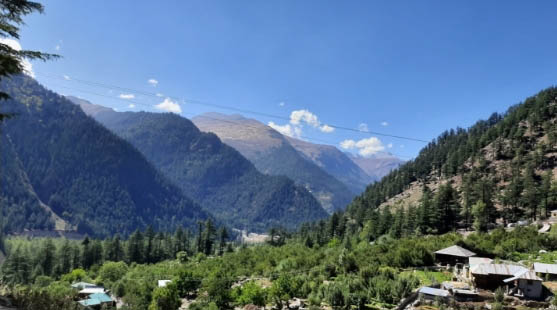SHIMLA: More than 60 environmental NGOs, civil society groups and activists from across the Himalayan region have joined hands, demanding an immediate repeal of the proposed rules in the Forest Conservation Act (FCA) from the Ministry of Environment, Forest and Climate Change (MoEF&CC).
The proposed rules is a draconian law as it ignores the "voice of Himalayan people". Its withdrawal is essential to protect rights of indigenous communities and forest dwellers thereby preventing the growing ecological crisis and forest degradation in the Himalayan states, demand NGOs.
On the other hand, MOEF & CC is firm on its stand. The Centre has proposed this move to push companies and development projects vigorously in the region mainly in Arunachal Pradesh, Jammu and Kashmir, Ladakh, Himachal and other border region.
Centre is prompted by Chinese pursuing an aggressive policy in the Himalayan border region. China has created massive infrastructure and logistics along the borders and line of actual Control and has built colonies and big hydropower projects in the Himalayan region on its side.
Taking advantage of law, the "NGOs are the major stumbling blocks in the projects". The companies have to suffer huge losses to the projects due to cost overruns caused by protests by NGOs, officials plead.
However, NGOs assert that this push aims to bypass the NOC of Gram Sabhas, which is considered a hindrance in the projects.
These 60 different NGOs and activists, most of them left-oriented have submitted a memorandum in this regard to the MOEF & CC On August 12, 2022.
Their anger is further fueled by a poor track record of both Himachal and Uttarakhand in implementing Forest Rights Act(FRA), 2006.
They cite the status report of FRA of February, 2022, Ministry of Tribal Affairs to substantiate their charge against the governments.
As on 28.02.2022, Himachal Pradesh had received 2746 claims- 275 from individuals and 129 from the community. But only 35 individuals and two community based claims got titles.
Similarly, Uttarakhand government has received 3574 claims- 3091 individuals and 171 community-based. But only 171 individuals and one community based claims have got title from the government.
The new rules of MOEF &CC will give it a big last blow. They slam bureaucracy for making undemocratic rules devoid of multi-disciplinary perspectives with utter disregards for indigenous knowledge systems and natives.
These NGOs include Himdhara Palampur, Janlok Jagriti Manch Kinnaur to Dibang resistance group Arunachal Pradesh to J and K RTI movement, Save Lahaul-Spiti and others.
The proposed rules in FCA have come at a time when Himalayan people are facing hydra-headed problems including crop failures, shrinking landholding, migration to the cities, nutrition, flash floods and trash crisis in the mountains.
These problems are spelled by climate change, related disaster risk, deforestation, loss of biodiversity, landslides, drying up of rivers, depleting ground water sources, melting glaciers, hollowing of mountains and pollution related to solid and hazardous waste. These problems have become a new normal, NGOs warn.
More worrisome is that Himalayan region is known to be ecologically sensitive and geologically fragile. Even a small tampering with nature can have a huge impact on the lives of millions of locals.
NGOs cite recent examples that will make the proposed rules even worse.
In the last few years, the companies or projects have increasing violated environmental norms, widening the gaps in provisions of social accountability.
The government has encouraged decreasing democratic public participation in the environmental impact assessment process. This, in turn, has aggravated the crisis.
In 2017 the government had realised this. The MoEF& CC had amended the FCA rules in 2017, making a provision of Gram Sabha NOC under the Forest Rights Act, 2006 for the projects.
But MOEF &CC’s proposed rules had undone its own doing. The rules this time aim to bypass this Gram Sabha NOC to push up projects on the ground that the process and NGOs intervention at this stage drive away the investors.
The Ministry proposed the provision of taking NOC of Gram Sabha after the second phase of the project.
“This raises many questions. It will kill democratic processes followed in the country”.
It has exposed intention of the policy makers sitting in the Ministries and raising question regarding very existence of such ministries, whose moral duty is to protect the rights and interests of people at large.
Dibang Resistance Group from Arunachal Pradesh said the new FCA rules 2022 threatens our indigenous movement against hydropower in Arunachal Pradesh as it prioritizes state consent before the people.
“Since more than 140 MoUs were signed by the state govt with hydropower companies in the state, FCA rules give no opportunity for the grassroot people's voices to be represented by the state”, the group said.
Massive cultural and ecological disaster looms upon our state via these HEPs that also threatens downstream Assam and Bangladesh”.
Hydropower has been projected as renewable or green energy undermines the massive scale of destruction in cultural and ecological integrity of people, they plead.
But the power developers plead that the power projects would usher in an era of prosperity in Arunachal Pradesh, which has India's largest power potential in the hydro sector.
It will bring in investment of billions of rupees in the state and will take care of environment under the Social corporate responsibility.
Citing the example of J and K, Dr. Raja Muzaffar Bhat, Founder of the J&K RTI Movement, Kashmir says: “The Forest Rights Act was rolled out in Jammu Kashmir after 13 years of its enactment and by amending the FCA tribal people of Jammu Kashmir and other Traditional Forest Dwellers will be again deprived of rights under FRA”.
Sunder Negi, a member of “No Means, No Campaign”, Kinnaur, Himachal Pradesh says that, “On one hand a tribal has been elected as the President of the country and on the other hand the rights of tribals are being undermined in this way”.
If this continues, then the tribal area will be visible only on the map. Th small tribal area like Kinnaur will not be able to raise its voice to protect its culture, environment, dialect, tradition, and its identity from being "mortgaged to the big companies", NGO says.
Eventually our country and state will lose the balance of its natural resources and human society, which will prove to be a great loss for all, NGOs say.
“The rivers of our region will be seen in the tunnels, natural calamities will increase and there will be an atmosphere of anger among the people in the border areas.”
In the wake of this crisis, the signatories groups from Arunachal Pradesh, Assam, Uttarakhand, Jammu & Kashmir, Himachal, Meghalaya, Manipur and Sikkim have demanded immediate repeal of the Forest Conservation Act - Proposed Rules 2022.
They demand more inclusive, participatory and ‘just’ forest governance. The planners should scrap the top-down approach of today’s forest management and governance system.
They demand immediate withdrawal of FCA Rules, 2022 by MoEFCC and the Central Government. We demand strict compliance with FRA and complete assurance of settlement of rights with prior consent of Gram Sabha ‘before’ proposing any such projects requiring diversion of forest in Himalayan Region.
They demand 60 days more time for any such proposals. The proposals should be in local scheduled languages that each villager understands and participates in the process.
They demand a gradual shift towards rights-based conservation. This can be done by empowering indigenous communities who are rich in indigenous knowledge systems without compromising their own ‘worldview’ and ‘relationship’ with various ecosystems.




